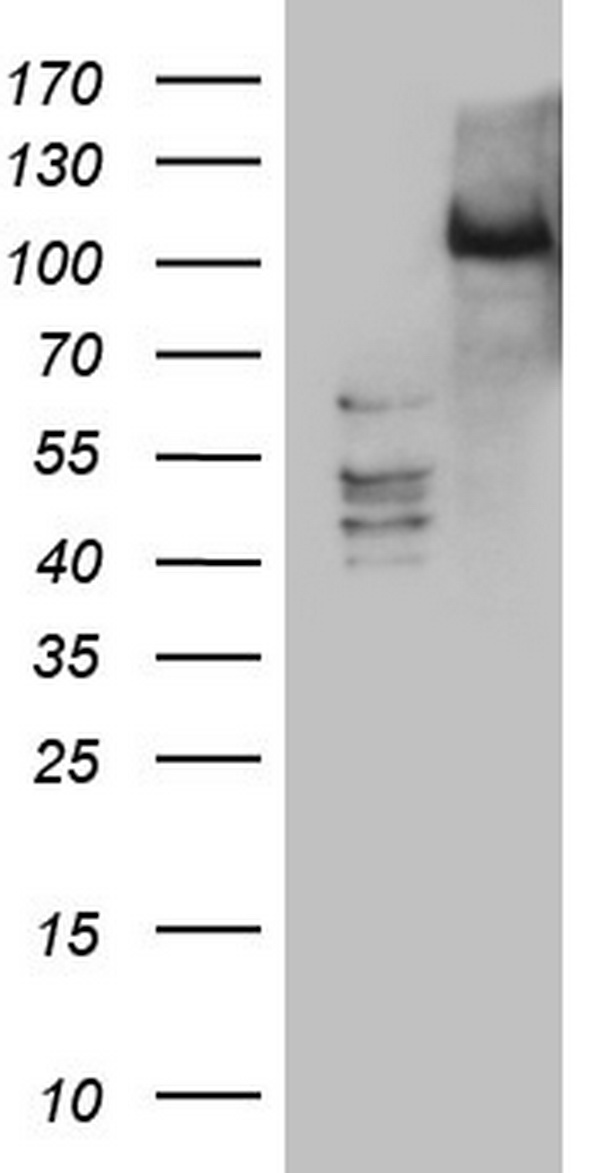PKC nu (PRKD3) Mouse Monoclonal Antibody [Clone ID: OTI3D8]
CAT#: TA805583
PRKD3 mouse monoclonal antibody, clone OTI3D8 (formerly 3D8)
Size: 30 ul
Formulation: Carrier Free
Specifications
| Product Data | |
| Clone Name | OTI3D8 |
| Applications | IHC, WB |
| Recommended Dilution | WB 1:500, IHC 1:150 |
| Reactivities | Human, Mouse, Rat |
| Host | Mouse |
| Isotype | IgG2b |
| Clonality | Monoclonal |
| Immunogen | Human recombinant protein fragment corresponding to amino acids 300-508 of human PRKD3 (NP_005804) produced in E.coli. |
| Formulation | PBS (PH 7.3) containing 1% BSA, 50% glycerol and 0.02% sodium azide. |
| Concentration | 1 mg/ml |
| Purification | Purified from mouse ascites fluids or tissue culture supernatant by affinity chromatography (protein A/G) |
| Conjugation | Unconjugated |
| Storage | Store at -20°C as received. |
| Stability | Stable for 12 months from date of receipt. |
| Gene Name | protein kinase D3 |
| Database Link | |
| Background | Protein kinase C (PKC) is a family of serine- and threonine-specific protein kinases that can be activated by calcium and the second messenger diacylglycerol. PKC family members phosphorylate a wide variety of protein targets and are known to be involved in diverse cellular signaling pathways. PKC family members also serve as major receptors for phorbol esters, a class of tumor promoters. Each member of the PKC family has a specific expression profile and is believed to play a distinct role. The protein encoded by this gene is one of the PKC family members. This kinase can be activated rapidly by the agonists of G protein-coupled receptors. It resides in both cytoplasm and nucleus, and its nuclear accumulation is found to be dramatically enhanced in response to its activation. This kinase can also be activated after B-cell antigen receptor (BCR) engagement, which requires intact phopholipase C gamma and the involvement of other PKC family members. [provided by RefSeq, Jul 2008] |
| Synonyms | EPK2; nPKC-NU; PKC-NU; PKD3; PRKCN |
| Reference Data | |
| Protein Families | Druggable Genome, Protein Kinase |
Documents
| Product Manuals |
| FAQs |
| SDS |
Resources
| Antibody Resources |
{0} Product Review(s)
Be the first one to submit a review






























































































































































































































































 Germany
Germany
 Japan
Japan
 United Kingdom
United Kingdom
 China
China






